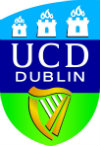World-Systems Research Day
Friday 29 June 2012, 10.30AM to 5.00pm
Speaker(s): Professor Immanuel Wallerstein, Yale and other speakers
** CAPITALISM ** WORLD-SYSTEMS ANALYSIS ** AND WORLD LITERARY SYSTEMS **
LITERATURE, SOCIOLOGY, GEOGRAPHY, ECONOMIC HISTORY & CAPITALISM IN CRISIS
Following on from Professor Wallerstein’s public lecture on 28th June, 5.15pm in PX/001, there will be an exciting world systems research day that responds to his work on capitalist modernity and the structural crisis of capitalism.
His work has been foundational to the development of world systems analysis and his primary areas of expertise are:- the historical development of the modern world-system
- structures and systems of knowledge
- the contemporary capitalist world-economy
This is an interdisciplinary event that interrogates capitalism and the capitalist world system. It will speak to historians, sociologists, geographers and anyone concerned with the economics of our social, cultural and political experience.
It also has a strong literary dimension and the literary world system is a central point of focus for the event and will be addressed and explored by Professor Neil Lazarus and the WReC group from Warwick’s Department of English and Comparative Literary Studies.
They are particularly interested in, and will be discussing three unpinning questions:
1) What is the relation of world-systems history to world-literary systems?
2) How does the specificity of capitalist history inflect the disciplinarity of world literature?
3) In what ways does ‘combined and uneven development’ augment and/or challenge world-systems analysis as applied to literary-cultural studies?
Additional topics covered include:
- WORLD CITIES
- ECOLOGICAL MATERIALISM
- RISK/FANTASY/ECONOMICS
- NEOLIBERALISM
Additional speakers include:
- Dr Jeremy Gilbert (University of East London) on ‘Anti-capitalism and the world system’
- Professor Peter Taylor (University of Loughborough), ‘Cities in World-Systems Analysis’
- Prof Ted Benton (University of Essex), ‘Ecological historical materialism and world system analysis’
- Dr Nicky Marsh (Southampton University), ‘Consenting Adults?: Risk and Sex in the Financial Economy’
- Dr Jane Elliott (Kings College London), ‘Game Theory of Thrones: Fantasy, Destiny, Neoliberalism’
And, more speakers to be announced.
This event will particularly appeal to people interested in debating the history and current crisis of capital.
It will also be especially pertinent to those engaged with and/or working on:
- world literature/global literature/postcolonial literature
- global culture/s, city spaces and ecologies
- core/periphery relations and economies
Sample Abstracts
Professor Peter Taylor
Cities in World-Systems Analysis
The modern world-system can be considered a great 'social machine' for taking peasants off the land and depositing them into cities to become urban workers. We are seeing the last major episode in this mega-process in contemporary China. This paper focuses upon the pull factor in rural-urban migration. The attractiveness of cities can be reduced to one word: jobs. In other words cities are loci of economic growth. This argument leads us to the ouvre of Jane Jacobs; like Immanual Wallerstein she eschewed to notion that there are 'national economies' but she replaced them by city-economies rather than world-economies. I report on my efforts to bring Jacobs' ideas into world-systems analysis through investigating historical city networks.
Professor Ted Benton
Ecological historical materialism and world system analysis
Neoclassical economics, in the shape of ‘environmental economics’, seeks to integrate environmental costs into economic analysis by way of the notion of ‘natural capital’, and various more or less ingenious ways of assigning economic value to environmental goods and bads. Despite the conceptual incoherence of this cluster of ideas, the outcome is a set of reform measures that promise to moderate the environmental damage imposed by capital accumulation to some degree. However, the record so far is very limited, both in terms of the depth of the reforms and their geographical scope.
Alternative approaches conceptualise ecological degradation in terms of dynamics endemic to capitalist economic, social and political relations. Drawing, with more or less revision, on Marxian critical political economy, these approaches tend to see intensifying ecological crisis as a necessary feature of the current phase of capitalist ‘development’: ‘sustainability’ implies a transition beyond capitalism. O’Connor’s concept of a ‘second contradiction’ of capitalism, and the idea of a ‘metabolic rift’ (Foster and others) endemic to capitalism are two very fertile developments in this tradition.
However, it is arguable that the exponents of these developments have so far not fully linked these ideas to a thoroughly worked-out account of the global-scale dynamics of capital accumulation and geo-political divisions. Proponents of world system analysis have, in recent years, paid increasing attention to ecological degradation and a dimension of global political economy. This talk will consider the relationship between these convergent bodies of thought.
Dr Nicky Marsh
Consenting Adults?: Risk and Sex in the Financial Economy
The speculative languages of finance capital are highly figurative: financial trading is frequently represented through a dyadic hypermasculinity that simultaneously militarises and sexualises its practices. This language evokes the dialectic of crisis and risk: capital's immediate, inevitable and ongoing state of crisis finds its counterpoint in the language of risk, in the fantasy that rational quantitative judgements can discipline the irrational sexual energies that successful speculation depends upon. Such a fantasy has, of course, been laid bare in the last four years as it has become clear that risk is a leveraged source of profit and loss – a gamble – rather than a site of proper control.
This paper contrasts two kinds of representations of this relationship between crisis and risk, specifically focusing on their metaphorical displacement onto a sexualised and/or bodily discourse. In the first instance, I examine the ways in which the exuberant organic language of finance radically shifted following the financial crisis at the end of 2008, paying particular attention to how the discourses of financial regulation attempted to retrospectively distance themselves from their previous permissive attitudes. Secondly, I examine how these ironies and inconsistencies were pre-figured and critiqued in fiction published in the years leading up to the crisis. It examines two novels, Alan Hollinghurst's The Line of Beauty and Lawrence Chua's Gold by the Inch, which both use metaphors of illness to explore the contradictions of contemporary finance. Both novels – in very different ways – use this metaphorical slippage in order to critique its implications, pointing to the very limiting meanings of risk in contemporary finance culture.
Dr Jane Elliott
Game Theory of Thrones: Fantasy, Destiny, Neoliberalism
‘When you play the game of thrones, you win or die. There is no middle ground.’ This trademark line from the TV series Game of Thrones highlights the series’ combination of two ubiquitous elements of contemporary American popular culture: the genre of epic fantasy and the trope of the survival-game. As many critics have noted, fantasy has achieved an unprecedented ascendance in Anglo-American popular culture since the turn of the 21st-century, with texts such as the Harry Potter and Lord of the Rings series occupying terrain that in the 1990s belonged to sf blockbusters such as the The Matrix. The survival-game has risen to prominence over roughly the same period, beginning with the reality TV show Survivor (2000) and most recently taking shape in the fantastically successful Hunger Games novels and film; these survival-game texts all collapse of life-and-death situations with the abstracted environment and legislated consequences associated with game play. By analysing the intersection of these two trends in Game of Thrones—as well as the Song of Ice and Fire novels on which the television programme is based—I suggest that the survival-game depicts neoliberal subjectivity as a problem for which epic fantasy is then offered as a solution. Ultimately, I argue that the boom in epic fantasy points toward a complex relation between the perpetual prisoner’s dilemma that is neoliberal governance and the world-changing choice that Immanuel Wallerstein argues inevitably results from structural crisis.
World Systems research day poster (PDF ![]() , 13,704kb)
, 13,704kb)
 |
 |
 |
Location: Bowland Auditorium, Berrick Saul Building
Admission: All welcome, all day!
Email: Claire.Westall@york.ac.uk
